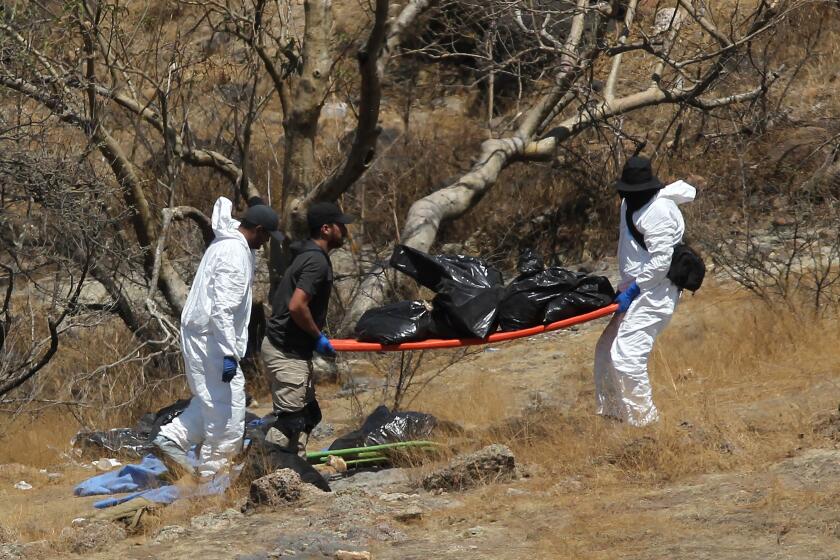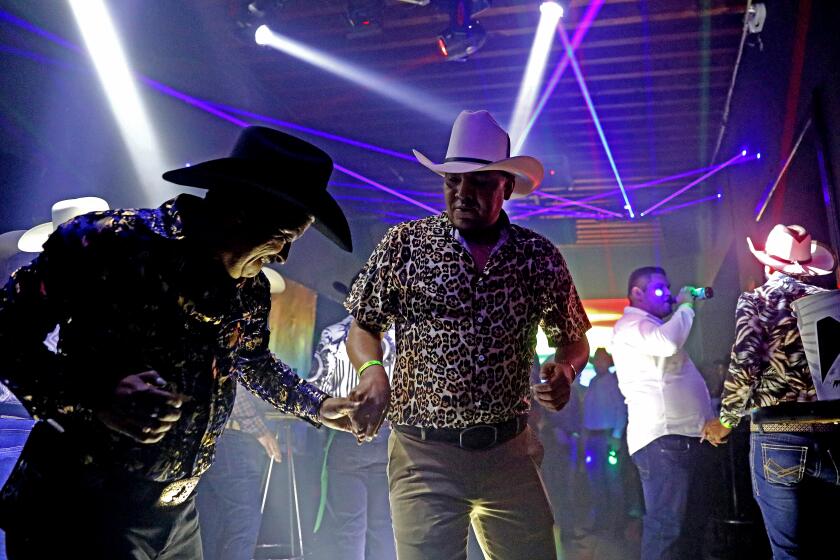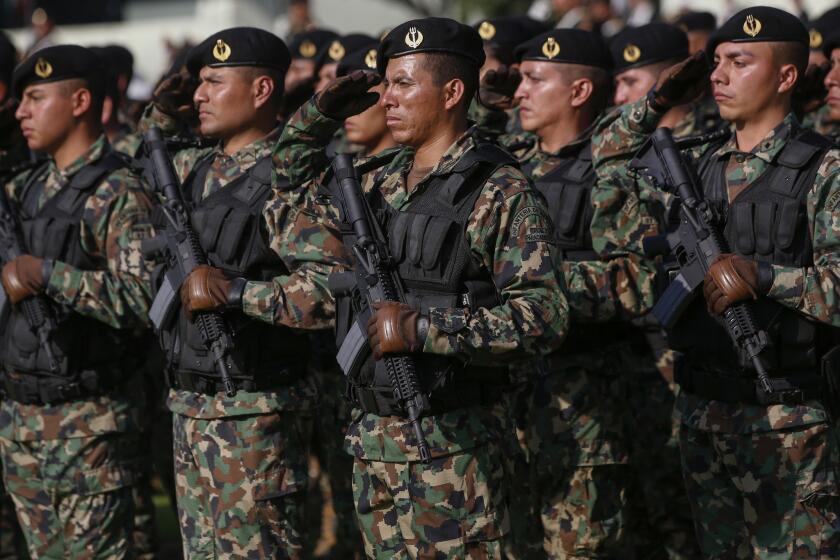One party has governed Mexico’s biggest state for a century. It looks as if that is about to change

ATLACOMULCO, Mexico ‚ÄĒ For nearly a century, one party has governed Mexico‚Äôs most populous state.
The Institutional Revolutionary Party, known as the PRI, dominated political life in Mexico for decades by rigging elections, buying off labor unions and suppressing dissent. Even after its nationwide monopoly was broken in 2000, the party maintained a tight grip on power here in the state of Mexico.
But in gubernatorial elections Sunday, what was long seen as unthinkable is now widely expected: The party will lose one of its last strongholds.
‚ÄúThe extinction of the PRI,‚ÄĚ as the Mexican media have been putting it, seems in some ways the inevitable result of its long history of corruption and the self-enrichment of its leaders.
Mexican authorities discovered 45 bags of human remains while searching for missing seven call center workers outside Guadalajara.
Multiple former PRI governors in other parts of the country have been convicted of graft in recent years, and a news report last week implicated the current governor of the state of Mexico in a $300-million embezzlement scheme.
‚ÄúThey made themselves millionaires,‚ÄĚ said Vito Baltazar, a 66-year-old retiree. ‚ÄúThey governed only for themselves.‚ÄĚ
But perhaps a bigger factor in the demise of the PRI is the swift rise of Morena, the party that Baltazar said he plans to vote for.
Founded less than a decade ago, the party has taken over much of Mexico. It boasts a wide majority in both chambers of Congress, and with a win in the race for governor here, the party and its allies will control 22 of Mexico’s 31 states, along with the federal district of Mexico City. The PRI will probably be left with just two.
Despite spiraling violence and a stagnating economy, Mexican President Andrés Manuel López Obrador has maintained sky-high approval ratings because he speaks to the working poor.
Morena has become so dominant that some critics warn that it is ushering Mexico into a new kind of one-party rule ‚ÄĒ or perhaps one-man rule.
The party’s success rests squarely on its founder, President Andrés Manuel López Obrador, the populist widely known as AMLO whose vows to combat corruption and put the poor first have inspired a fervent following.
‚ÄúAMLO could put a sock puppet up as a candidate and the sock puppet would win,‚ÄĚ said Carlos Bravo Regidor, a professor at the Center for Economic Research and Teaching, a public institution in Mexico City. ‚ÄúThis is obviously about AMLO and the intensity of his support.‚ÄĚ
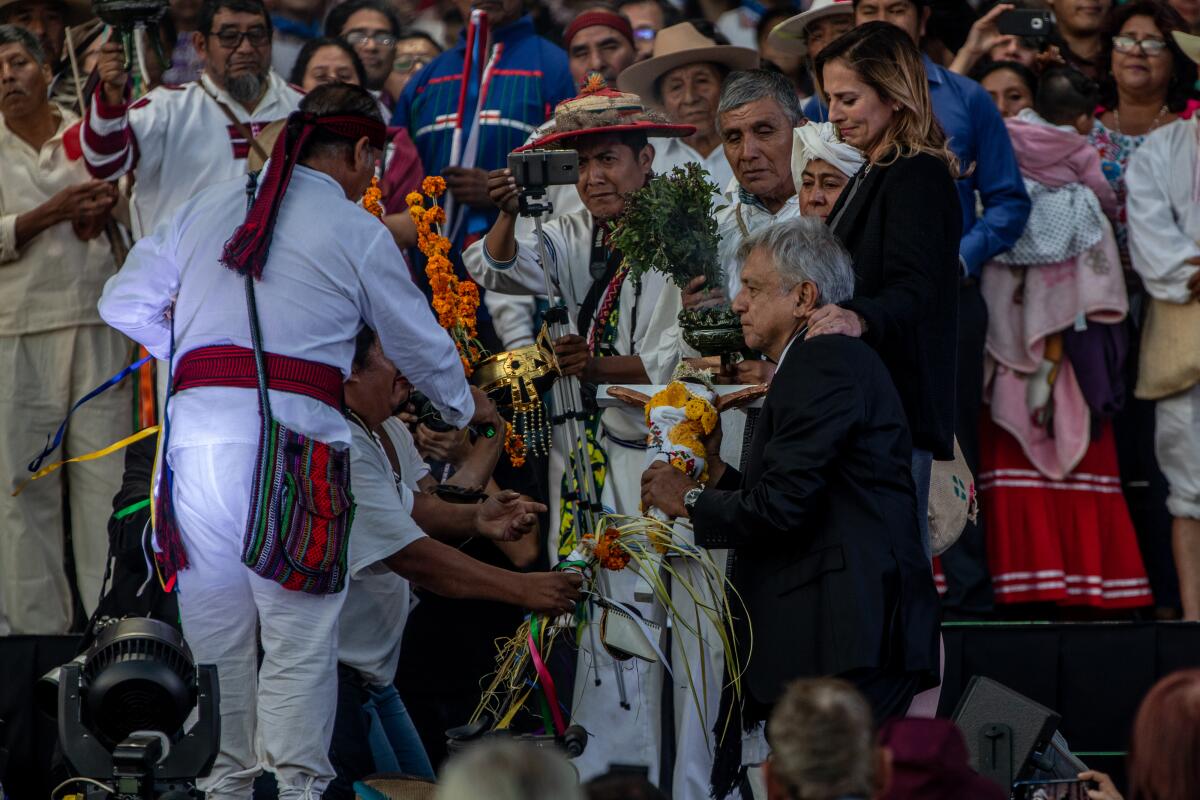
That seemed clear at a Morena campaign rally on a cloudy morning last week in Jilotepec, a small town north of Mexico City.
The president‚Äôs picture ‚ÄĒ tan skin, silver hair, prominent front teeth ‚ÄĒ was everywhere, printed on T-shirts, pins and bags. Vendors hawked AMLO dolls as attendees sporadically broke out into chants of ‚Äúit‚Äôs an honor to be with Obrador.‚ÄĚ
Many in the crowd acknowledged that they didn’t know much about the gubernatorial candidate, Delfina Gómez, a former schoolteacher and mayor who was once fined by election officials for docking the pay of city workers to raise cash for Morena.
Still, polls show Gómez with a double-digit lead over Alejandra del Moral, a lifelong member of the PRI, which has held the governorship for 94 years straight. Gómez is running with a coalition of parties that once opposed the PRI, including the center-right National Action Party and the leftist Party of the Democratic Revolution.
That three former enemies have now united in an attempt to defeat Morena says a lot about how the political landscape in Mexico has shifted since López Obrador swept into power in 2018.
Each spring, hundreds of gay cowboys gather in Zacatecas for a convention that celebrates sexual freedom and romanticizes Mexico’s rural past.
That year, his party won big nationally and made significant inroads at the local level in the state of Mexico. Morena won even in Atlacomulco, the municipality whose name has long been synonymous with a group of PRI elites, including former President Enrique Pe√Īa Nieto.
‚ÄúThere have been a lot of presidents that have come from here, but what have they done for us?‚ÄĚ asked Katy Montoya, 40, a street vendor of sweet bread in Atlacomulco who voted against the PRI for the first time in 2018 and who plans to support G√≥mez on Sunday.
Like many Mexicans, her favorite policy change under L√≥pez Obrador is a program that sends cash welfare payments to students, young workers and the elderly. ‚ÄúIt‚Äôs given them dignity,‚ÄĚ she said of older Mexicans. ‚ÄúWith the money they get from the government, they can fix up their homes or come here and buy bread.‚ÄĚ
Support for López Obrador tends to fall along class lines, which helps explain why Morena is so far ahead in polling in the state of Mexico.
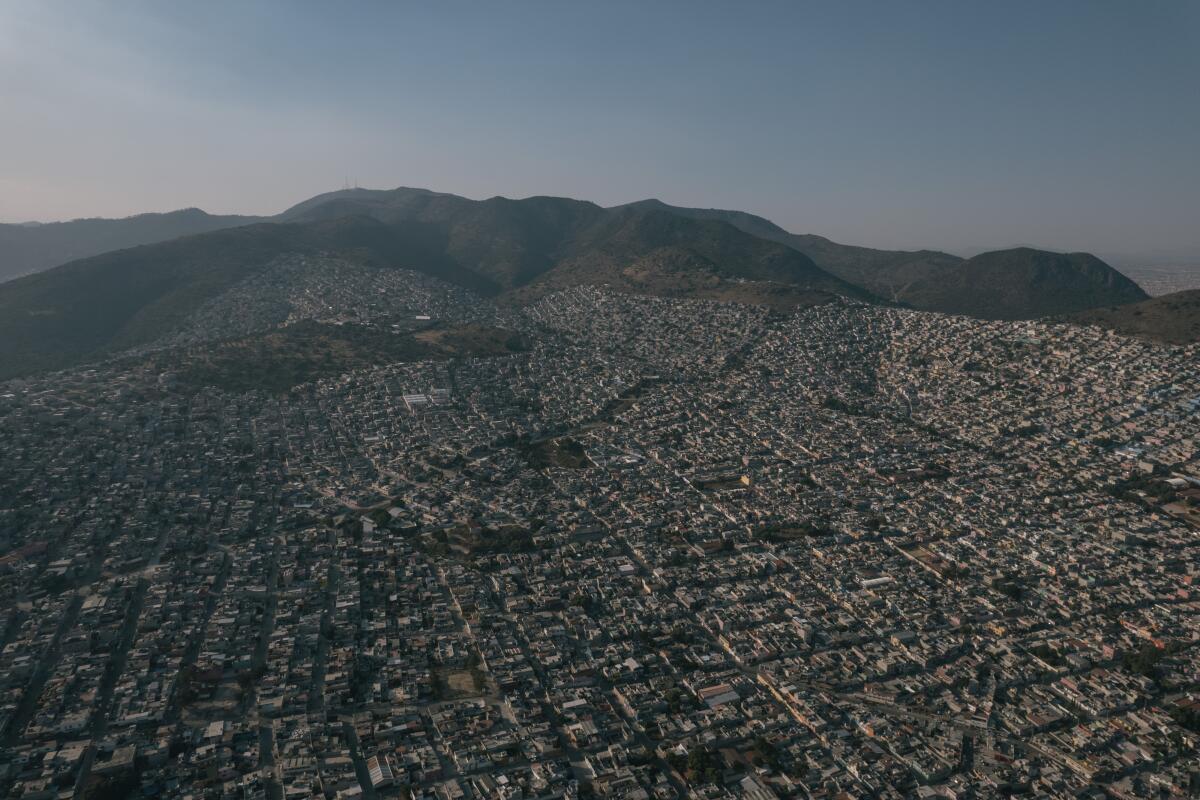
A sprawling patchwork of suburbs, urban slums, farmland and industry, the state is home to 1 in 8 Mexicans and is an economic powerhouse, contributing 9% to the country’s GDP.
Yet it is also plagued by crime and hardship, with nearly half of residents living below the poverty line and 9 in 10 reporting that they feel unsafe.
‚ÄúWe obviously need a change,‚ÄĚ said Reina Isabel Reyes, a 22-year-old teacher who like many people here has been the victim of armed robbery on public transportation. ‚ÄúWe just want peace.‚ÄĚ
The PRI, meanwhile, has become a party of people who are fearful of the change that López Obrador seems to represent.
Catalina Plata Arzate, a 71-year-old resident of Atlacomulco, said she would be voting for the PRI candidate Sunday ‚Äúbecause I‚Äôm middle class.‚ÄĚ She suggested that L√≥pez Obrador‚Äôs expansion of entitlement programs was leading the country toward communism.
‚ÄúIt‚Äôs all the people from the bottom who vote for him,‚ÄĚ Plata said. ‚ÄúThey all think he‚Äôs the second coming. But we don‚Äôt want another Venezuela.‚ÄĚ
The U.S. decision to drop drug trafficking charges against Gen. Salvador Cienfuegos shines a light on Mexico’s increasingly powerful military.
With the PRI likely headed for defeat and the opposition a shambles, many have wondered what it means that Mexico is again dominated by one party.
‚ÄúWe do seem to be heading in a way towards a new hegemony,‚ÄĚ Bravo said.
While noting that Morena has won its elections democratically, without the vote-rigging of the PRI, he and other analysts say that the lack of well-organized opposition isn’t healthy for the country.
Many of López Obrador’s proposals have sailed through Congress largely unchallenged, including a controversial measure to keep the army on the streets until 2028, part of the president’s larger push toward militarization.

The only thing standing in his way on many issues is the Supreme Court, which L√≥pez Obrador has relentlessly attacked as part of an antidemocratic ‚Äúmafia of power‚ÄĚ that rules in favor of the rich. It‚Äôs a criticism he tends to levy against anyone, be it a journalist or member of civil society, who dares to critique him.
The president‚Äôs recent efforts to overhaul the country‚Äôs electoral institute ‚ÄĒ which critics say would reduce its autonomy and concentrate power in the hands of the ruling party ‚ÄĒ prompted cries of authoritarianism. At a march in Mexico City opposing the changes, some people held signs calling L√≥pez Obrador a dictator. Others compared him to the PRI.
‚ÄúI had to live when the PRI was the only party that governed, and we all suffered,‚ÄĚ said Rosa Maria Velazquez, a 52-year-old who manages a sports club. ‚ÄúAMLO is doing the same. He wants to return Mexico to an old, retrograde, undemocratic country where a single party ruled.‚ÄĚ
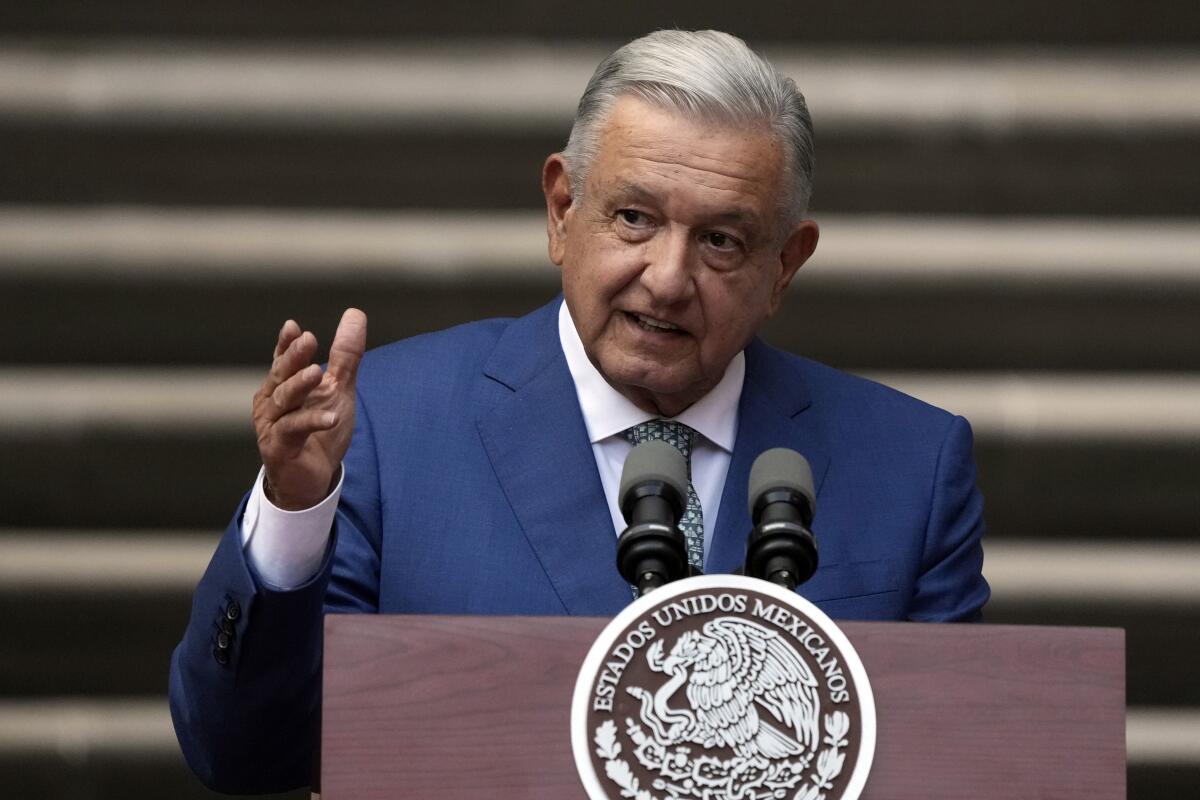
L√≥pez Obrador insists that he will respect Mexico‚Äôs constitution ‚ÄĒ which limits presidents to a single six-year term ‚ÄĒ and will step down next year.
The process of choosing Morena‚Äôs presidential nominee could weaken the party, with followers of the three main hopefuls ‚ÄĒ Mexico City Mayor Claudia Sheinbaum, Foreign Secretary Marcelo Ebrard and Interior Secretary Ad√°n Augusto L√≥pez Hern√°ndez ‚ÄĒ already starting to split into camps.
Still, polls suggest that a Morena victory is inevitable in 2024. A recent survey predicted that a Morena candidate would win 55% of the vote, compared with 22% for the National Action Party and 14% for the PRI, with the rest of the votes scattered among smaller parties.
Jorge Zepeda Patterson, who recently wrote a book about L√≥pez Obrador, told El Pais newspaper that he thinks the Morena primary process will, in effect, ‚Äúbe the presidential election in Mexico.‚ÄĚ
And although Morena has a formal nominating process, there is no doubt that L√≥pez Obrador is the one guiding it. ‚ÄúIt is not that he is the leader of a party,‚ÄĚ Zepeda said. ‚ÄúIt is that the party practically belongs to him.‚ÄĚ
Cecilia Sánchez Vidal in The Times’ Mexico City bureau contributed to this report.
More to Read
Sign up for Essential California
The most important California stories and recommendations in your inbox every morning.
You may occasionally receive promotional content from the Los Angeles Times.
